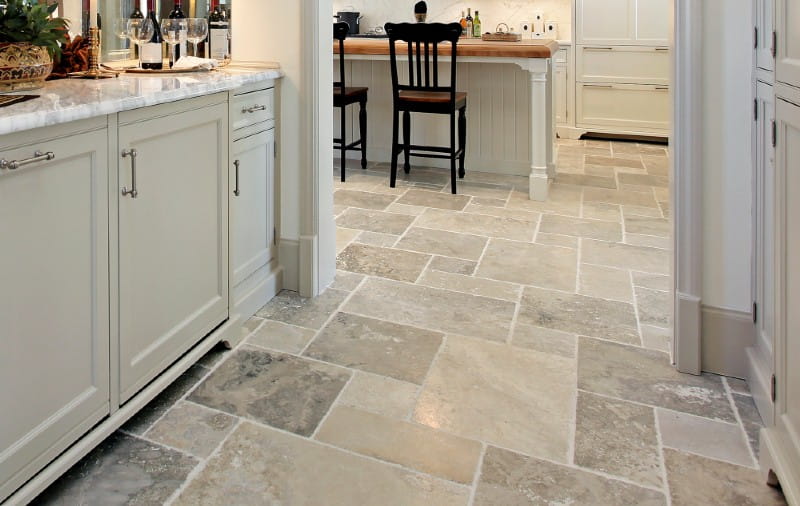Natural stone floors make for stunning additions to your home. They are timeless, classy, and come in a variety of patterns and designs that make each tile truly unique. Natural stones, typically made from marble or granite, are harvested from mineral deposits that build up over time, dating all the way back to the prehistoric era.
Naturally, any homeowner would want to ensure that their natural stone floors are kept clean, pristine, and in excellent condition for decades to come. However, due to the mineral properties of the material, natural stone requires a little extra care to maintain.
Here are a couple of tips on how to get those marble, granite, or limestone floors shiny and new again!
1. Don’t use acidic cleaning chemicals.
Acid and natural stones are a big no-no. Acid corrodes the top layer of the stone, causing a phenomenon called etching. Etching happens when acid comes in contact with the stone or the stone sealant, causing a rough, white patch that makes the floor look dull and damaged.
The golden rule when it comes to cleaning marble and granite floors is to never use harsh, acidic cleaners like vinegar, lemons, or bleach. Instead, use commercial cleaners that were specially formulated for natural stone, or some castile soap diluted with water does the trick as well.
2. Apply a protective sealant to keep moisture out of your floors.
Marble, granite, and water don’t mix. When natural stones are constantly moist, they can harbour some organisms like bacteria, mold, and mildew which can emit a musty odour and be harmful to your health. A protective sealant will both polish and protect your floors from moisture, oils, and grease that may get into the pores of the stone material.
For a DIY marble floor polishing, you can use some wax or oil-based sealants that are safe for natural stones. You will need to re-apply topical sealants every few months or so to ensure that the protective layer is replenished over time.
3. Don’t wipe, scrub, or mop with too much force.
Natural stone materials are considered soft surfaces depending on the type of stone. Rigorous wiping, scrubbing, and mopping with abrasive tools will scratch the surface, and cause the material to degrade over time.
As a general rule, natural stones should be treated like glassware in terms of scratches. Use only soft and smooth tools to clean your natural stone floors, and avoid scrubbing at stained spots as the abrasiveness may worsen the damage.
4. Vacuum cleaners are great for cleaning all types of floors!
Vacuum cleaners are great for cleaning all types of floor materials – including natural stone floors! Make sure your vacuum cleaner does not have a scrubber attachment or a steam attachment, which may damage the stone floors.
Otherwise, vacuuming up is a terrific way to maintain your natural stone floors, as the vacuum sucks up any loose dirt and debris before they settle in the cracks and pores of your natural stone floors. Vacuuming should be the first step you take in your general home cleaning, and many vacuum cleaners can effectively remove the dust layer from floors. However, for a more efficient and thorough cleaning of tile floors that restores them to their original shine, consider utilizing SweepScrub equipment.
5. Don’t drag furniture on natural stone floors.
As stone floors are prone to scratches, dragging furniture around is not ideal if you’re looking to upkeep the shine and smoothness of your natural stone materials. Marble is especially prone to scratches, even with a protective layer of polish or sealant.
As much as possible, carry your furniture instead of dragging it across the room. Make sure to lift the furniture off the floor while doing so to prevent scratches from appearing on the surface. Use wheeled moving tools to move heavy furniture, like sofas and refrigerators, around as to avoid scratching your natural stone floors.
6. Keep moisture and oils away from your natural stone floors.
Overall, one of the best ways to care for your natural stone floors is to keep moisture and oils away from the material. Natural stones are porous, so mold and bacteria can grow where moisture and oils settle in the natural stone material.
When there’s a spill, immediately wipe the area dry and clean off any residue that may be stuck in the pores of your natural stone. Apply protective sealants to keep moisture away, and clean your floors everyday to prevent the build up of dirt. When maintained properly, natural stone floors can last your family for generations!


